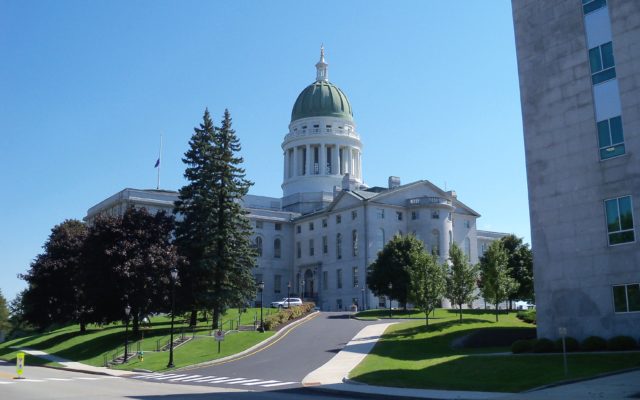
Republicans and Democrats almost blocked a new Maine charter school
By Billy Kobin, Bangor Daily News Staff
An attempt to allow more charter schools in Maine briefly turned into an effort to block a new one from opening before both Democratic and Republicans agreed to hold off on changes.
Those twists and turns came after lobbying on an issue that is in the spotlight after a deadlocked U.S. Supreme Court blocked the creation of a religious charter school in Oklahoma. Maine’s public charter school system dates back to 2011 as a legacy of the short period of Republican control of Augusta at the start of former Gov. Paul LePage’s tenure.
The recent episode, which was centered on one school in the Portland area, looks to have been a side effect of misunderstandings about the school’s mission and ongoing Democratic skepticism of charter schools. It led to a strange bipartisan coalition that irked conservative supporters of the system that served roughly 2,700 students entering this school year.
“If you support charters, then you need to support charters broadly,” Jacob Posik, the conservative Maine Policy Institute’s legislative affairs director, said of Republicans.
A bill submitted this year by Rep. Gary Drinkwater, R-Milford, initially would have increased Maine’s cap of 10 public charter schools by one each time it is reached. The Maine Education Association and statewide groups for school boards and superintendents were among those opposing Drinkwater’s initial effort to raise the cap, which has been in effect since 2019.
But Democrats and Republicans on the education committee looked set this month to agree on amending the bill to instead lower the state’s cap to nine schools, which is how many currently exist. That change revolved around one of the two new charter school proposals that came earlier this year to the Maine Charter School Commission for approval.
The Moxie Community School got approval to open in fall 2026 its first charter location by the Portland-Westbrook line, with the initial site serving 120 students in sixth and ninth grades before the school hopes to expand to serve seventh- through 12th-graders at additional locations in Cumberland County and the Lewiston area.
School leaders told the state commission they will have a “special focus” on a variety of learners, including those who “recently arrived” in Maine, who are low income or who may require special support due to coming from “multilingual” households.
Norm Higgins, the chair of the charter school commission and a former state representative from Dover-Foxcroft who served as a Republican and an independent, casually referred to Moxie in testimony supporting Drinkwater’s bill as the “New Americans Public Charter School.”
Lobbyists and others following the bill said references to new Americans, such as immigrants who recently arrived in Maine, made several Republicans turn on raising the cap that would allow the Moxie Community School to open. That united them with Democrats who want to lower the charter school cap.
But after a flurry of lobbying activity that pointed out the legal issues with blocking an already-approved charter school, members finally agreed to not pass Drinkwater’s bill and instead leave in place the 10-school cap.
Higgins told a reporter he did “not have any insight on the reason for Republican opposition.” The process confused Drinkwater, who asked a reporter about where the theory about the school only serving “new Mainers” came from. He wanted his bill to support new charters and higher education institutions, such as Maine Maritime Academy, that want “feeder systems.”
Sen. Joe Rafferty, D-Kennebunk, and Rep. Kelly Noonan Murphy, D-Scarborough, who both chair the education committee, did not respond to requests for comment. Sen. Jim Libby, R-Standish, a 2026 gubernatorial candidate who serves on the panel, said he does not favor spending more “per-pupil taxpayer dollars on new charter school expansions at this time.”
“Dollars earmarked for public schools should be preserved, at least until [charter schools] have a proven model,” Libby said.
The Moxie school intends to serve new Mainers and multilingual learners who “aren’t being served well” in the existing system but also plans to serve kids from throughout Maine or from other states,” Beth Rabbitt, the Moxie Community School’s founder, said.
Assumptions about only serving new Mainers were “really unfortunate,” she added. Posik said charter school proponents need to approve qualified schools as a matter of principle.
The second charter application this year was for a Wabanaki-focused hybrid learning school from Maine Indian Education in Calais, but those familiar with the process said financial viability concerns kept it from beating out Moxie for the final spot.
Rabbitt said she and her team project they will need to raise at least $3.5 million in their first five years before expanding. Its moniker was inspired by her daughter, who hopes to attend the school and whose favorite drink is Moxie, the state’s official soft drink with a name likely derived from the Abenaki word for “dark water.”
“We are moving full steam ahead,” Rabbitt said.